Do you think you’re ready to get your very own parrot? Parrots can make excellent companions! Many species of parrots can be friendly and even affectionate toward their owners. But this doesn’t come easy, though. While some species have an easier time bonding, others can be distrustful and even aggressive toward strangers. Improper handling can lead to a host of issues with your new feathery friend. Here are some common parrot ownership problems to know before you make a commitment to a new pet.
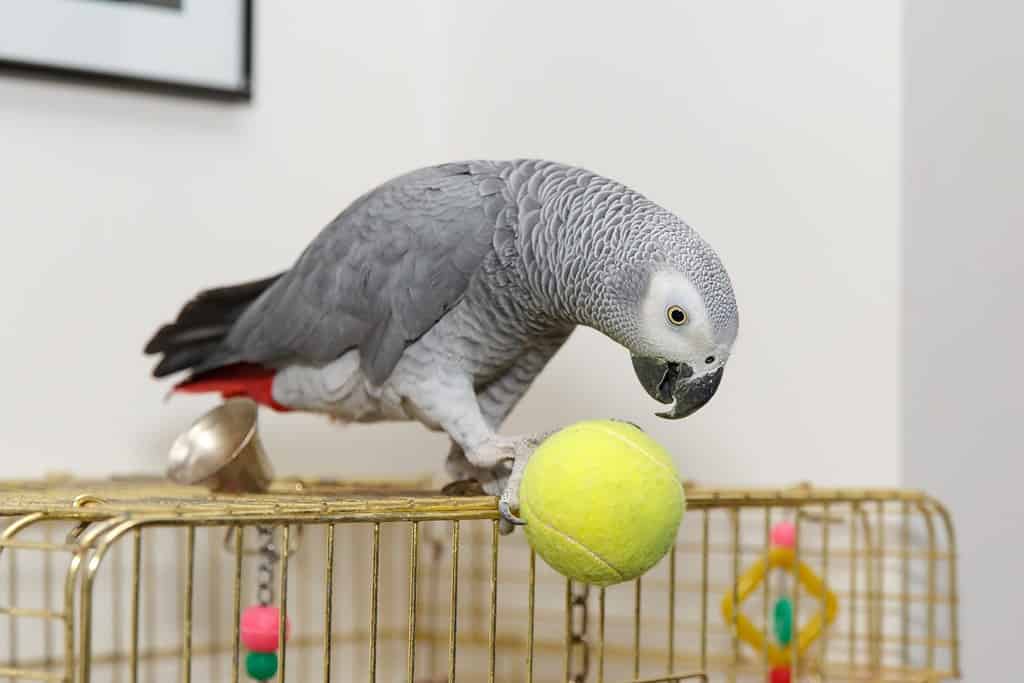
African grey parrots are brilliant and are known to have intelligence levels equivalent to a 4-year-old child.
©GaevoyB/Shutterstock.com
1. Can Be Costly to Purchase
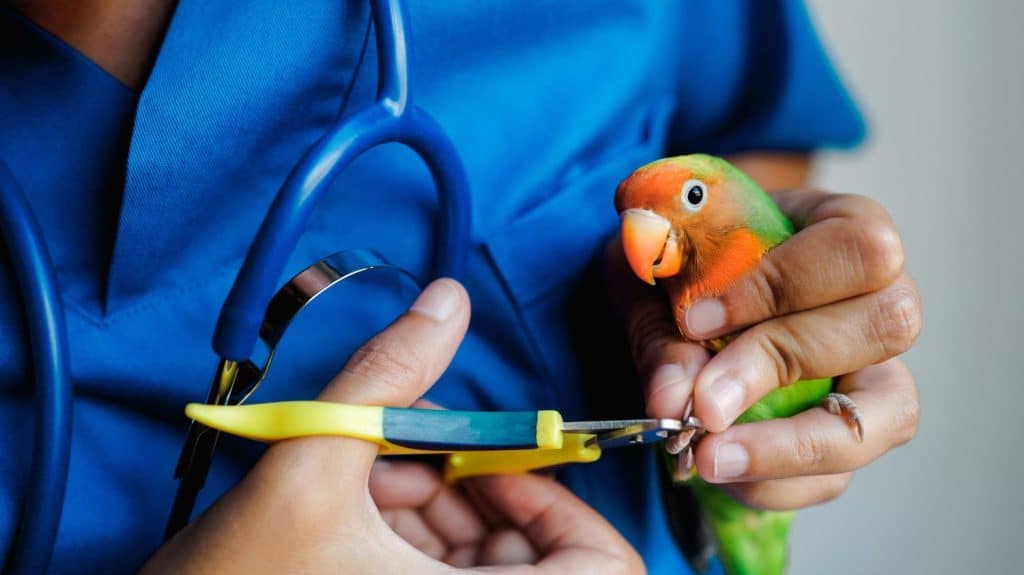
Parrot ownership problems include a high price tag for the parrot itself, veterinary care, food, and more.
©Nuva Frames/Shutterstock.com
You might think owning a bird will cost less than owning other types of pets, but they can still come with a hefty price tag. Here’s a brief look at what each species might run you. Keep in mind that prices can vary depending on the rarity and subspecies.
| Species | Price |
|---|---|
| Budgie | $20-$100 |
| Parakeet | $20-$100 |
| Cockatiel | $50-$275 |
| Lovebird | $100-$250 |
| Parrotlet | $150-$350 |
| Conure | $150-$1,400 |
| Quaker | $300-$700 |
| Lories & Lorikeet | $400-$1,000 |
| Jardine | $500-$1,200 |
| Senegal | $600-$800 |
| Eclectus | $600-$2,500 |
| Amazon | $600-$2,500 |
| Mini macaw | $700-$2,000 |
| Macaw | $700-$3,000 |
| African grey | $800-$3,600 |
| Pionus | $900-$2,000 |
| Caique | $1,000-$3,000 |
| Hawk-Headed | $1,000-$8,000 |
| Toucan | $1,000-$15,000 |
2. Demands Your Time and Lifelong Commitment
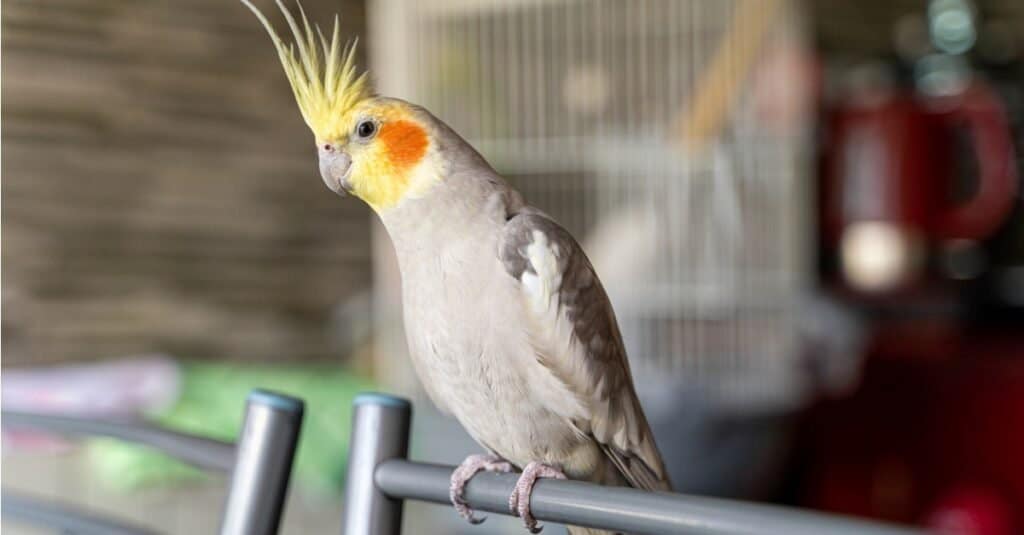
Expect to spend a lot of time and attention with your parrot to ensure their happiness.
©iStock.com/PaulGulea
Did you know that parrots can be very needy regarding affection? This a common problem with parrot ownership. Many owners will tell you that their parrot will thrive on your attention, and it’s vital to their overall health and well-being. These aren’t the kind of birds that will be satisfied cooped up in their cages all day! Ensuring that your bird has sufficient enrichment in its life can be tricky if you already have a busy schedule.
Also, it’s crucial to remember that some parrots have incredibly long lifespans. Small parrot species like budgies or cockatiels can live up to 15 years. But larger parrots like African greys or macaws can live much longer. One parrot named Cookie lived to the age of 83 at the Brookfield Zoo! And some other owners claim even longer lifespans in their parrots, but they can’t be verified. Regardless, having a parrot will require a lifelong commitment on your part.
3. Can Be Messy and Destructive
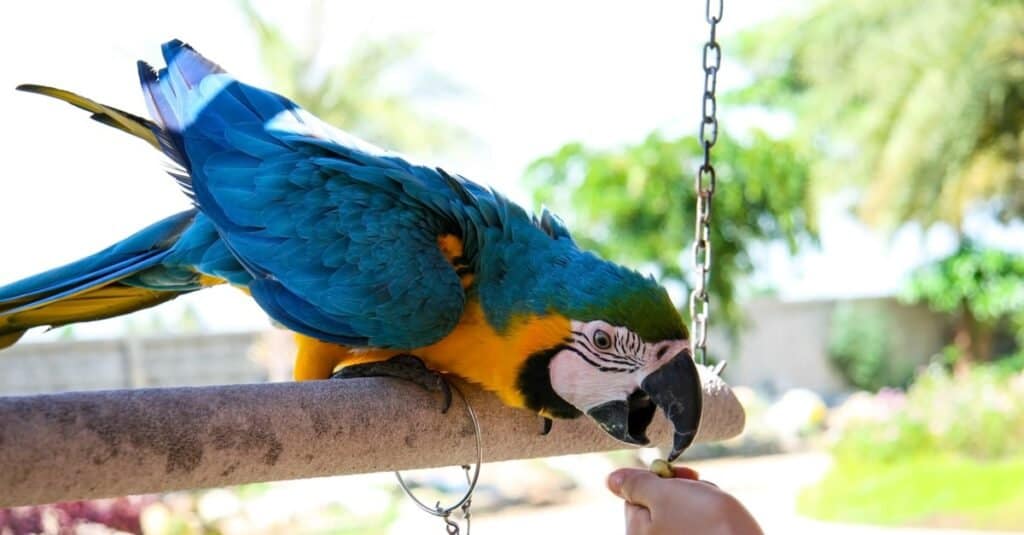
Many parrots spend their day preening, which can create a dusty environment in your home.
©TumCruise/Shutterstock.com
Parrots aren’t known for their cleanliness. Wild parrots have zero instinct when cleaning and will drop food, waste, and feathers wherever they please. They’re also known to waste food like seeds, fruits, and veggies by just dropping them to the ground! Parrots enjoy taking time to preen, so you’re sure to find a lot of debris. They also tend to poop every 15 to 30 minutes!
Parrots will use their beaks and feet to explore their environment, which means they lack precision when handling objects. Because their beaks are similar to human fingernails, it means they need to maintain it much like we do with nail clippers. They do this through chewing anything and everything in sight!
4. Needs Knowledgable Handlers
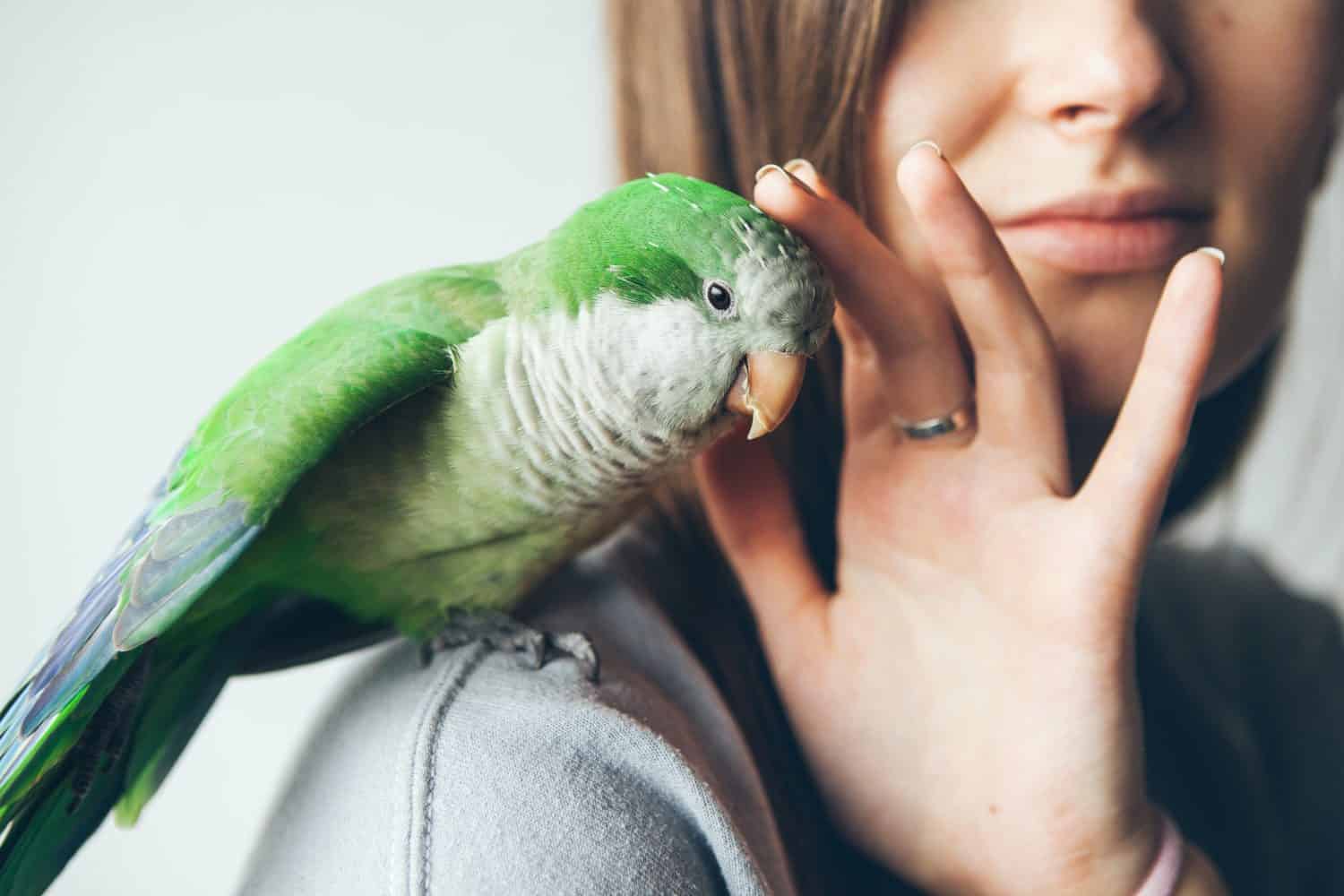
You should attempt to understand bird body language to understand their needs and keep them happy.
©Veera/Shutterstock.com
Birds require more knowledge when it comes to caring for them than you might think. Sometimes, people think birds are simple creatures, so they won’t need much handling or knowledge. The truth is, they can be much more difficult to own than even dogs or cats. Understanding your bird and their body language is critical to having a happy, healthy parrot. This isn’t a problem with parrot ownership if you educate yourself, however.
If you don’t know how to handle your bird, this can create a negative association for them, creating fear and aggression toward humans. A parrot isn’t a good option if you’re looking for a simple pet to own. In fact, most experts recommend one-on-one training with trainers and continuing education.
5. High Noise Levels
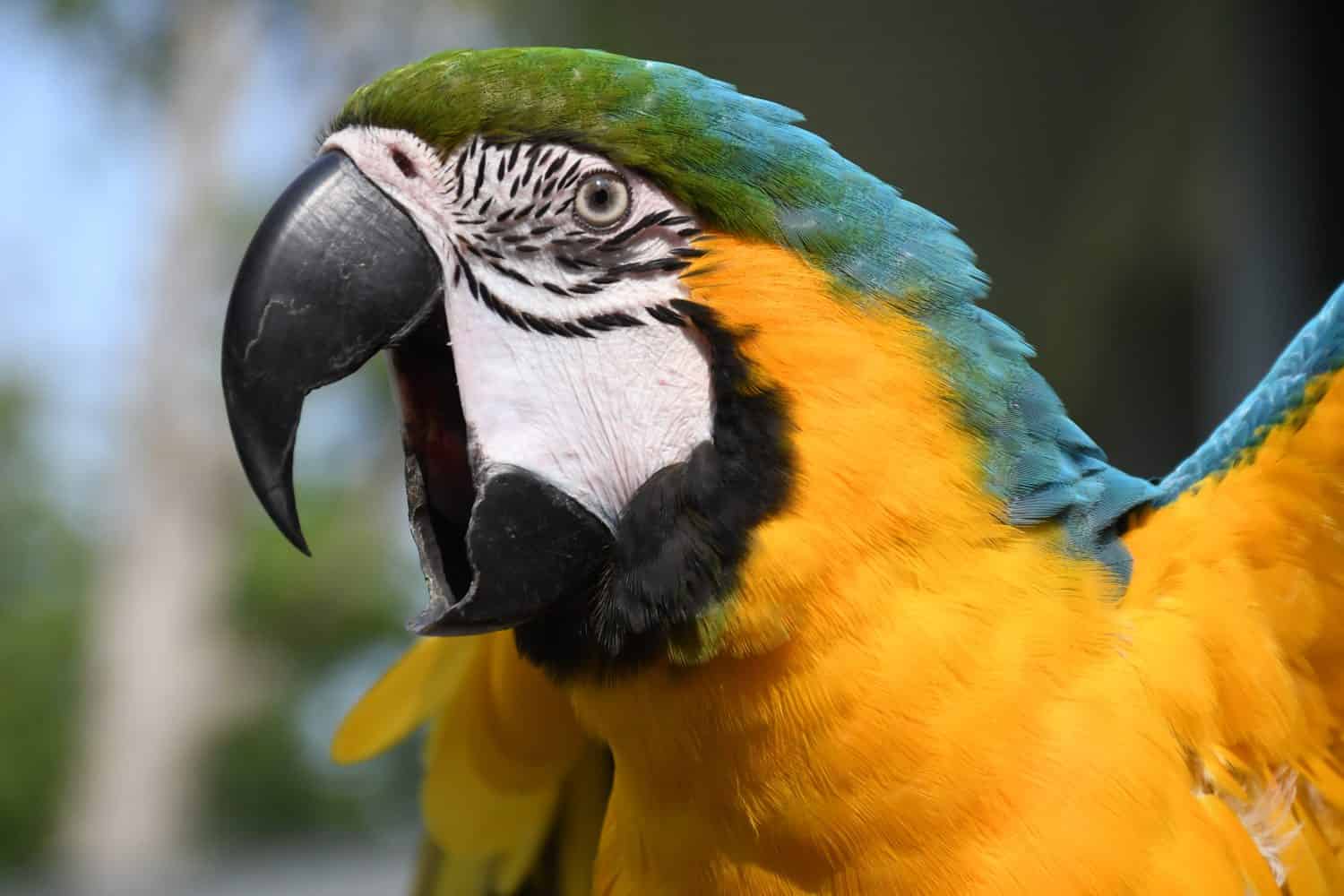
Very communicative birds, parrots can be on the louder side, a common pitfall for parrot owners.
©Maddie Benavent/Shutterstock.com
If you thought babies or dogs were loud, you might not be ready to experience a parrot in your home! Parrots scream to communicate their feelings to their flock as well. Birds like this tend to scream when they’re happy, bored, or want attention. They don’t care if it’s morning or night; if they feel like screaming, they will! They also have the ability to learn words, songs, and performances like tricks or dances. Once learned, they tend to practice all day long. If you value solitude, a parrot is not for you!
6. Requires Dedication to Nutrition
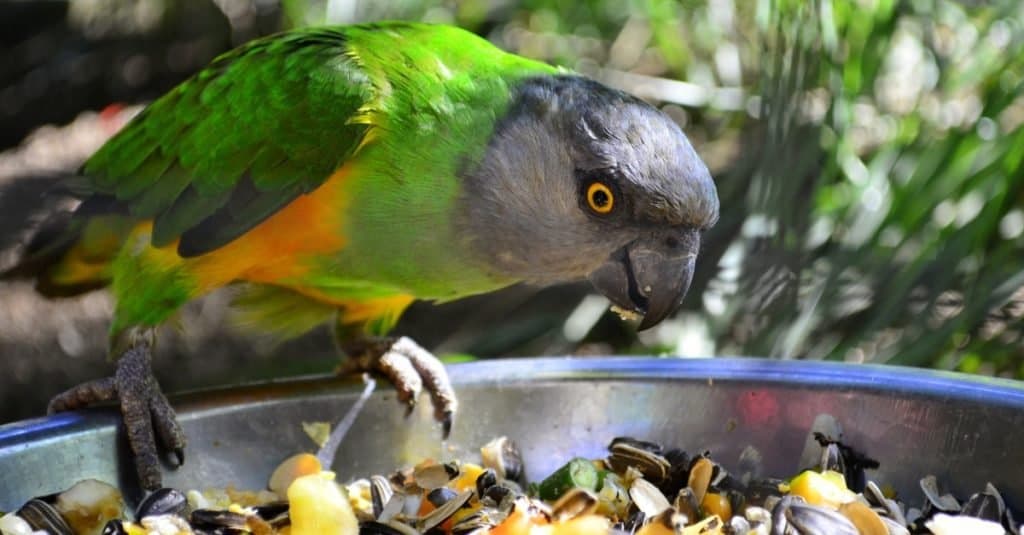
Parrots eat a variety of foods, not just birdseed.
©Eddy Fahmi/Shutterstock.com
If you thought you could buy some bird seed and call it a day, this won’t be nearly enough for your bird to thrive. Here are some ways poor nutrition can affect your parrot:
- Susceptibility to disease
- Dismal health
- Inability to breed
- Poor performance
- Reduced lifespan
- Poor moulting
So, how can you ensure that your parrot gets enough nutrition? You have to make sure that the vitamin percentages are correct! An adult parrot will need 70 to 90% good quality pellet food and at least 10% fresh foods like seeds, fruits, nuts, and veggies. Make sure you consult a veterinarian to create the optimal diet for your parrot, or else you might run into a common problem with owning parrots.
The photo featured at the top of this post is © Dusan Stevic/Shutterstock.com
Thank you for reading! Have some feedback for us? Contact the AZ Animals editorial team.






